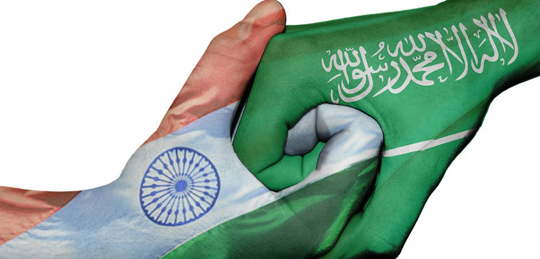Riyadh, Aug 3: Saudi Arabia today agreed to swiftly resolve plight of thousands of laid-off Indian workers including providing them free passage to return to India and clearing their unpaid dues after Union Minister V K Singh apprised the Saudi government about the humanitarian crisis.

The Minister of State for External Affairs held extensive talks with Saudi Labour Minister Mufrej Al Haqbani here who promised urgent action to resolve the difficulties being faced by around 7,000 Indians, most of whom are living in camps after losing their jobs due to economic slowdown in the oil-rich Gulf country.
The Saudi government also agreed to allow transfer of Indian employees, who have lost their jobs, to any other company within Saudi Arabia.
Singh arrived here today to assess the situation and finalise modalities to bring back the stranded Indian workers who even do not have money to buy food.
As per reports, the Labour Minister issued orders to allow the Indian workers to immediately transfer their sponsorship (kafala) and renew their residencies. Under the kafala system, which is applicable to foreign workers, employees are not allowed to move to a new job without approval of their bosses.
"We discussed all the issues related to Indian workers. It was brought out that the problem is because of one company which has not provided the humanitarian facilities as per the law of the land.
"The government of Kingdom of Saudi Arabia has taken serious note of this lapse and have taken immediate action to ensure that all camps where Indian workers were staying are provided facilities like medical, food, hygiene and sanitation," Singh said, describing his meeting with Haqbani as "very good".
Satisfied over Haqbani's response, Singh said he was thankful to the Saudi government for "very positive action and maganimous attitude".
Singh said Saudi government is also providing free passage to all those who want to go back to India and that they will also honour the claims filed by workers against the companies which have defaulted their payments.
"They have also agreed to allow transfer (of employees) to any other company within Saudi Arabia. Necessary action is in hand by the embassy of India to prepare suitable lists for filing claims as well as for people to go back. I am thankful to the Saudi government for very positive action and magnanimous attitude exhibited," Singh said.
Also Read:
Emirates plane from Kerala crash lands in Dubai after catching fire
Dubai plane crash: All 300 safe; Airport suspends all operations




Comments
HATS OFF SAUDI ARABIA for its initiatives for INDIAN Expats
Why Saudi Govt. is not taking action against that one company because that belongs to Son of Late Rafiq Hariri of Lebanon.
Add new comment